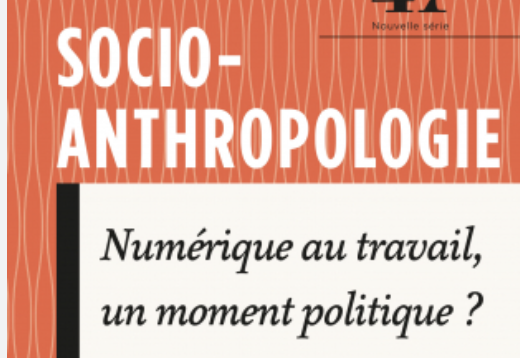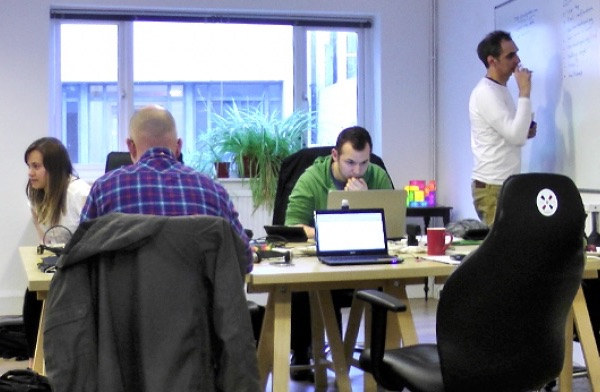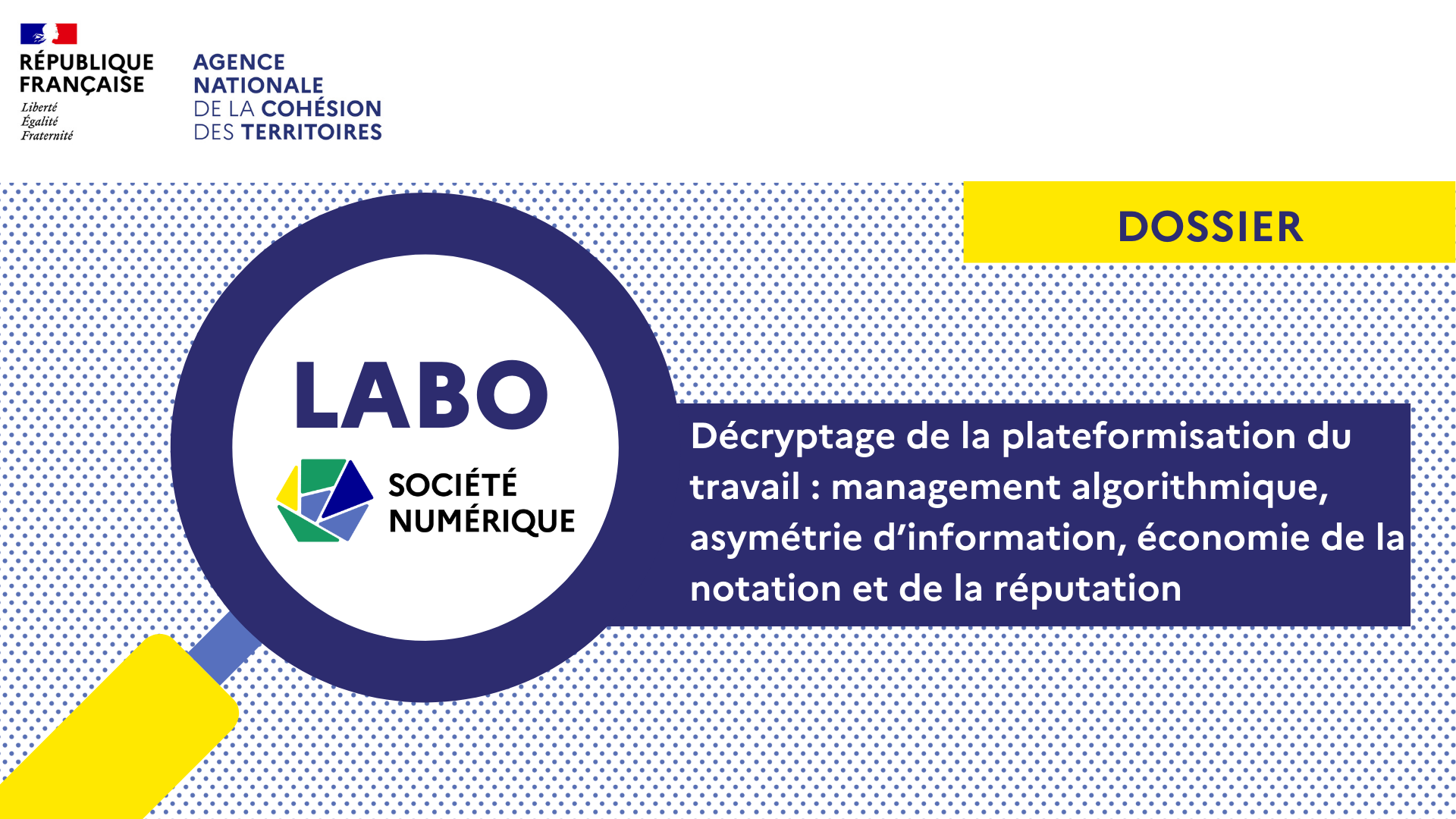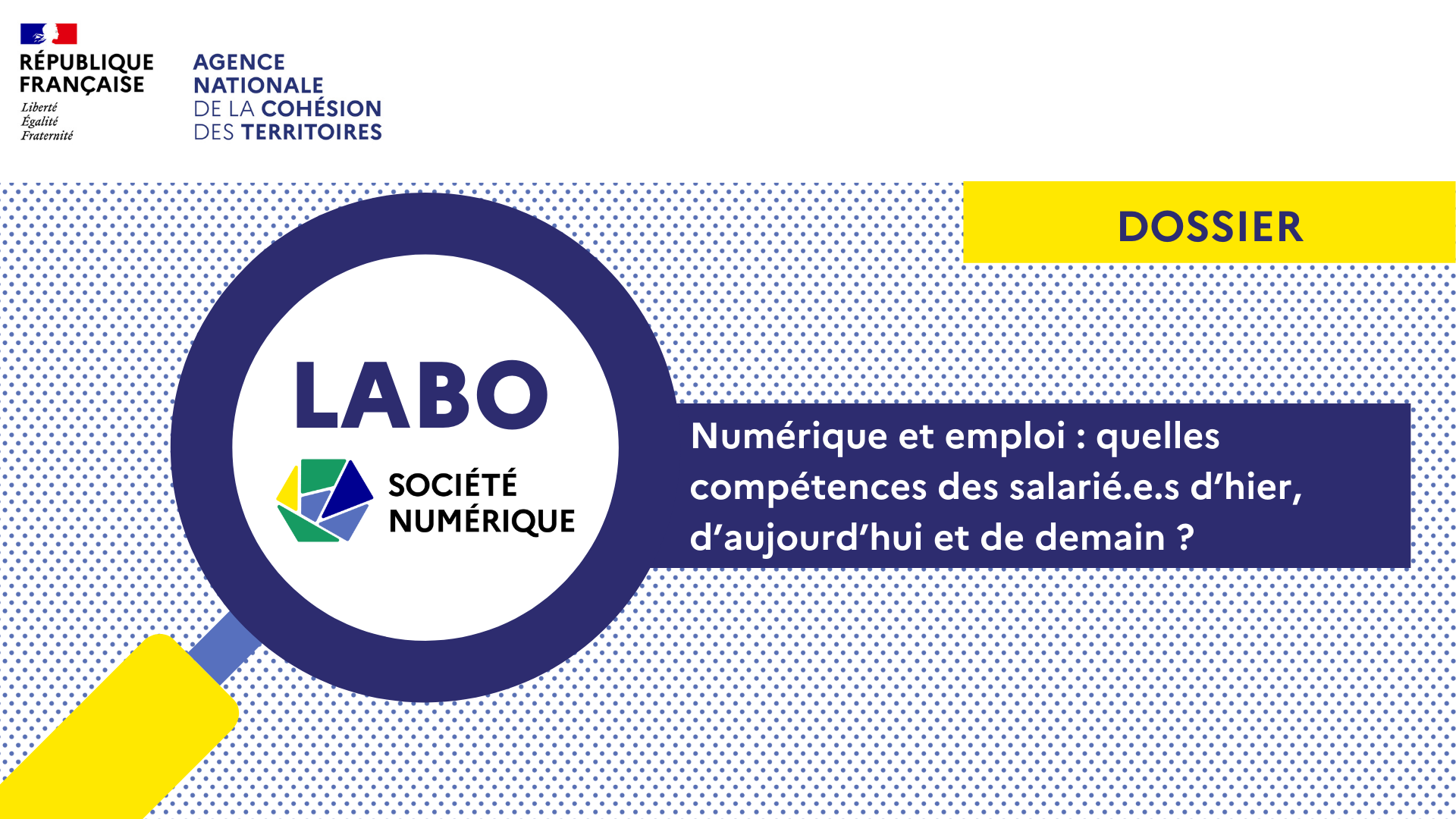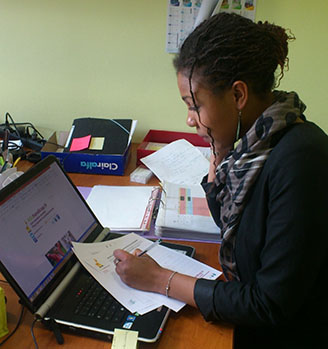« The omnipresence of information systems and their specific characteristics have a profound and long-term influence on the way organizations function, and on the lives of their members. Unilateral overhauls of processes, (undiscussed) attribution to the information system of decisions previously taken by individuals, omnipresence and (disproportionate) power of indicators: all sectors and functions of organizations are now concerned. »
- Digital at work, a political moment?
Socio-anthropologie magazine devotes a special issue to digital information systems (INS) in the world of work.
Référence :
Drawing on a wide variety of fields of investigation and experimentation (theatrical organizations, mobility platforms, archaeology, public archives, freight transport, health services, universities, etc.), this dossier describes a nuanced landscape of the influence of information systems on work: the risk of collective disintegration, "prevented" work, the search for the social acceptability of the information system rather than its relevance, but also inventive uses of this system (unforeseen by its designers), professional resistance leading to the evolution of the system, etc.
In an introductory text, Maryse Salles, Senior Lecturer in Computer Science at the University of Toulouse, and Raphaëlle Bour, Doctor of Computer Science, the coordinators of this dossier, review the rich literature on the digital workplace and identify six themes.
- The first is the relationship between digital information systems and democracy in organizations: "The question is to know whether (and how) collective subjects could take hold of information systems in an organization" and "concretely modify situations by asserting their equal capacity to do so".
- The second theme concerns changes in individual and collective work (task content, work standards, process structure, decision-making processes, success criteria, quality criteria, interactions, etc.) " and the way they are experienced individually and collectively, including suffering at work, but also the feeling of dispossession and loss of self-esteem found in the "bullshit jobs" analyzed by David Graeber".
- A third theme concerns changes in the autonomy of individuals and collectives (perimeters of autonomy, neotaylorism vs. cognitive work). "Is this autonomy linked to greater responsibility (without the means for this always being given)?"
- The fourth theme concerns the reactions of organizational members to the constraints placed on them by information systems.
- A fifth theme is the changing balance of power within the organization, and with its immediate environment (customers, financiers, suppliers, etc.).
- The final theme concerns the construction and evolution of information systems. Here, the focus is on new IT project management methods, in particular "agile methods", reputed to be more "democratic", the role of external stakeholders (project management assistance, standard software suppliers, etc.) and, more broadly, that of experts ("IT experts").
Mathilde Abel, a student at Sciences Po Aix en Provence, and Patrick Dieuaide, lecturer in economics at Sorbonne Nouvelle University, analyze the role of digital labor in VTC drivers' relationship of dependence on the platform they use. By putting drivers in touch with a customer, the platform is the source of a bargaining power that forces drivers to be constantly available to obtain orders. "The result is a particular form of subordination to the platform, which greatly alters their status as self-employed workers, and reduces to little the real autonomy they enjoy, even though this is often the basis of their commitment".
Christophe Tufféry, a research engineer at the French Ministry of Culture, studies the effects of digital devices on the practices and professional identities of one profession: that of archaeologists. Based on some one hundred interviews, the author highlights the fact that, despite the power of the "digital machinery", "the emotional dimension of archaeological knowledge, like the sensitive dimension of field experience, on an individual and collective level, remains highly significant (...) A certain autonomy of archaeological professionals therefore remains in a wide diversity of their scientific practices ".
Using the example of a freight transport operator's operations room, Christophe Munduteguy, Research Fellow at Gustave Eiffel University, describes "invisible work": "when activity takes place outside the information system ". In this activity, the transport of goods, made up of unforeseen events and uncertainties, and where digital tools do not always enable efficient management, " a large part of the work is carried out outside the system, even "without its knowledge".
From archaeologists who appropriate the digital tool in a wide variety of ways, to agents in the freight forwarder's computer room, who develop external resources and skills to compensate for malfunctions in the information system, "there seems to be a certain ambivalence or ambiguity about the digital tool's impact on work collectives".
Marie Benedetto-Meyer demonstrates the ambivalence of the digital tool through interviews with 25 managers using Microsoft Teams. Marie Benedetto-Meyer, Senior Lecturer in Sociology at Troyes University of Technology, shows that Teams, far from contributing to the emergence of organizational and management innovations, reinforces the risk of collective disintegration, scattered activity and fragmented organizational forms. Nevertheless, the survey suggests that "paradoxically, the managers questioned develop other forms of appropriation and use the tool to better manage their multi-activity and their involvement in numerous formal or informal collectives, which are generally not very structured ex-ante".
Reporting on the introduction of chatbots in a major corporation, Marion Gras-Gentiletti, PhD in ergonomics, highlights the difficulty of so-called "intelligent" technical devices in helping employees. After outlining the context that drives manufacturers to innovate at all costs, the author explains how "employees manage to appropriate these devices in a way that differs from that intended by their managers and designers".
If digital tools can thus be appropriated by those who use them, what about the evolution of relationships between systems of actors within organizations, and between the organization and its environment?
The case of "maisons et centers de santé" information systems, studied by doctoral student Manon Plégat(Université de technologie de Troyes), illustrates the negotiations or "negotiated equilibrium" that take place around the evolving uses of information systems. These information systems are generally presented as relevant technical supports for improving the quality and continuity of care. However, their integration into caregiving practices reveals technical shortcomings, which in turn fuel professional resistance. Despite the technical failings and professional resistance, the author believes that "organizational adjustments, made possible by the supervisory authorities, and successive redefinitions of the aims of these systems, carried out by professionals, finally enable a meeting between designers-prescribers, users and systems".
While the process of introducing business software into the professional world of archivists bears witness to an organizational culture that is not very participative, and while the technological dimension of the tool, through the skills it requires, "accentuates the exclusion of agents from the spheres of definition of work processes", Maëlle Moalic-Minnaert, PhD in Political Science, observes less a "transformation of power relationships " than a " formal reconfiguration of the role occupied by each individual in the definition of work systems ". The real limit, she concludes, is " the arrival on the scene of an external service provider imposing a cognitive framework that distances archive departments from the decision-making process".
From health centers to archivists, when deploying digital tools, the players seem to be able to find arrangements or new balances, and to evolve the definition of working arrangements.
In their case study of administrative and technical managers in theatrical organizations, Chloé Langeard, Director of the UA-CULTURE department at the University of Angers, and Marine Cordier, Senior Lecturer in Sociology at the University of Paris Ouest Nanterre, show that digital tools (including management software packages), mainly designed for resource planning and cost control, "play a central role in the activities of technical directors and administrators". By enabling them to control the production chain and bolster their professional legitimacy, " these devices are helping to reconfigure forms of management, as well as the balance of power and power relations between "professional" managers with technical expertise and "managerial" managers.
Involving users in the design of digital public services is a leitmotif of public digitization policies. Surveys carried out at public interest organizations in Belgium reveal the ambivalence of participatory mechanisms with regard to recognizing the needs of minority users. "Their involvement is aimed not at questioning the relevance and usefulness of the future service intended for them, but at improving the efficiency of its operating methods". Périne Brotcorne, a researcher at the Université catholique de Louvain, points out that these participatory mechanisms "contribute above all to fostering the social acceptability of digital services among audiences who are far removed from them, in a logic of governing conduct".
Maryse Salles, Senior Lecturer in Computer Science at the University of Toulouse, and her co-authors have developed a structured method, called ISIDOR, to analyze and measure the impact of an information system on an organization's level of democracy. They report here on an experiment with the method, carried out within the faculty of a major university, on the basis of two dimensions of democracy: user autonomy and the actual reality of what is referred to in the method as "democratic dispute". The authors show that the INS used, well adapted by administrative managers, degrades the level of autonomy of teacher-researchers.
In an interview with the magazine, Danièle Linhart, director emeritus of research at the CNRS and a sociologist renowned for her work on work, believes that "there is no inevitability in the role played by digital technology ".
In her view, digital technology must always be repositioned within the managerial thinking that underpins it and the work organization that implements it. " Digital software, processes and practices abstract knowledge, experience and know-how by rooting them in programs based on quantitative, mathematical and procedural approaches, thereby accelerating the process of dispossessing employees of their knowledge. From this point of view, digital technology appears to be a kind of hyper-taylorism, or the dream outcome of Taylorism. According to Danièle Linhart, if we want to democratize the use of digital technology in companies, we first need to " think about democratizing the organization of work. Digital technology could thus be an extremely valuable tool for debate, for organizing forums, discussions and emulation, as part of a rethinking of work and the company".
Contents
- Maryse Salles and Raphaëlle Bour: What digital information systems do to work
- Mathilde Abel and Patrick Dieuaide: Duality of workspaces and new forms of subordination: The case of mobility platforms
- Christophe Tufféry: Between the notebook and the tablet. A contribution to the study of the effects of digital devices on the practices and professional identities of archaeologists in the field since the 1970s.
- Christophe Mundutéguy: Invisible work, or when activity takes place outside the digital information system. The case of a freight transport operator's operations room
- Marie Benedetto-Meyer: Collaborative work tools: revealing and amplifying tensions in managerial work
- Marion Gras Gentiletti "I don't understand your question". The case of the introduction of chatbots in a large company
- Manon Plégat: Shared information systems in nursing homes. Between technical constraints, organizational adjustments and professional issues
- Maëlle Moalic-Minnaert Archivists put to the test by "business software". Reconfiguring participation
- Chloé Langeard and Marine Cordier: (En)jeux autour des outils de gestion numériques. The case of the work of administrative and technical managers in theatrical organizations
- Périne Brotcorne: Digitization of services of general interest and representation of minority users. Participation without power?
- Maryse Salles, Raphaëlle Bour, Gabriel Colletis, Lycette Corbion-Condé, Étienne Fieux and Anne Isla: Assessing the impact of a digital system on an organization's level of democracy. Proposed method
- Interview with Danièle Linhart. Is digital technology the dream outcome of Taylorism?


